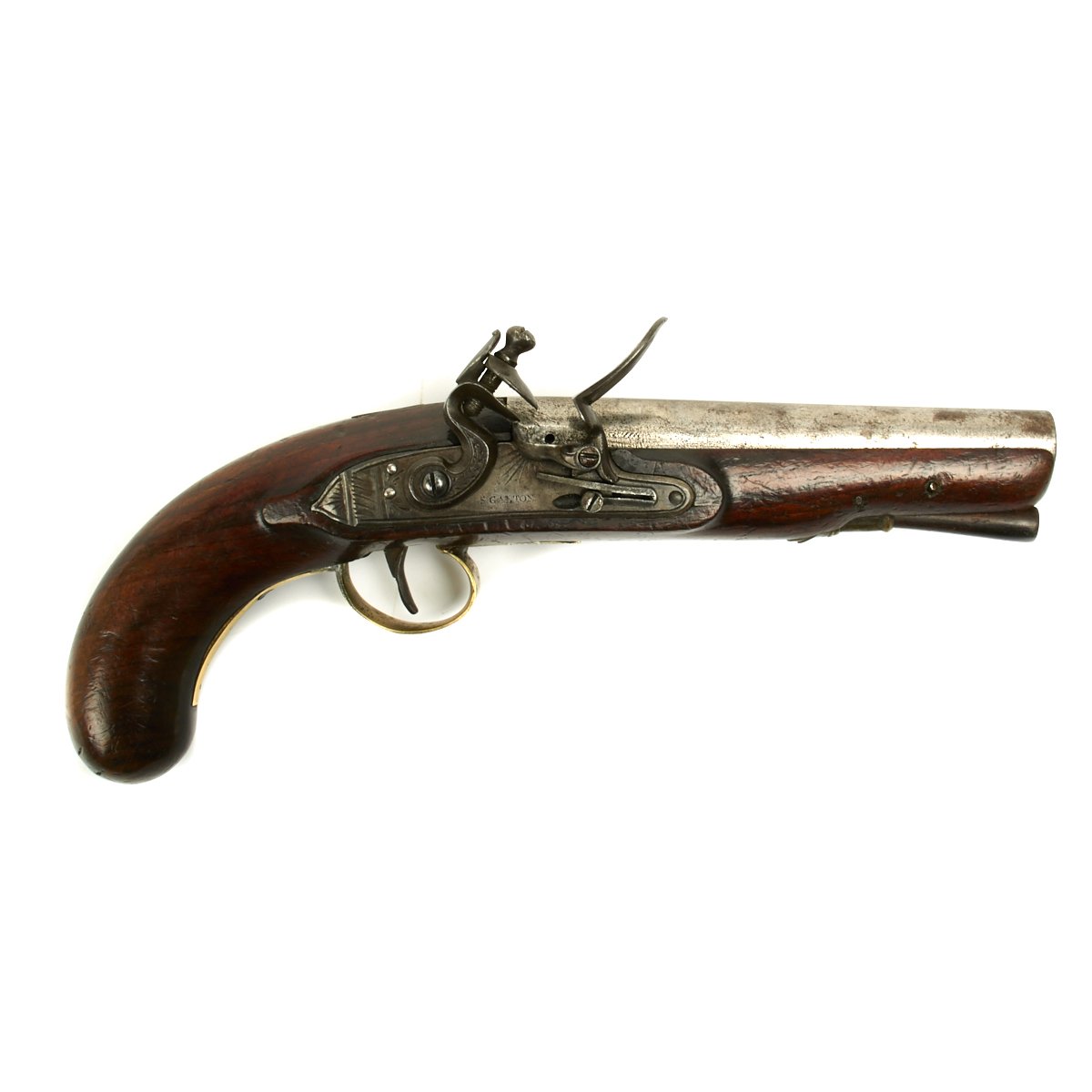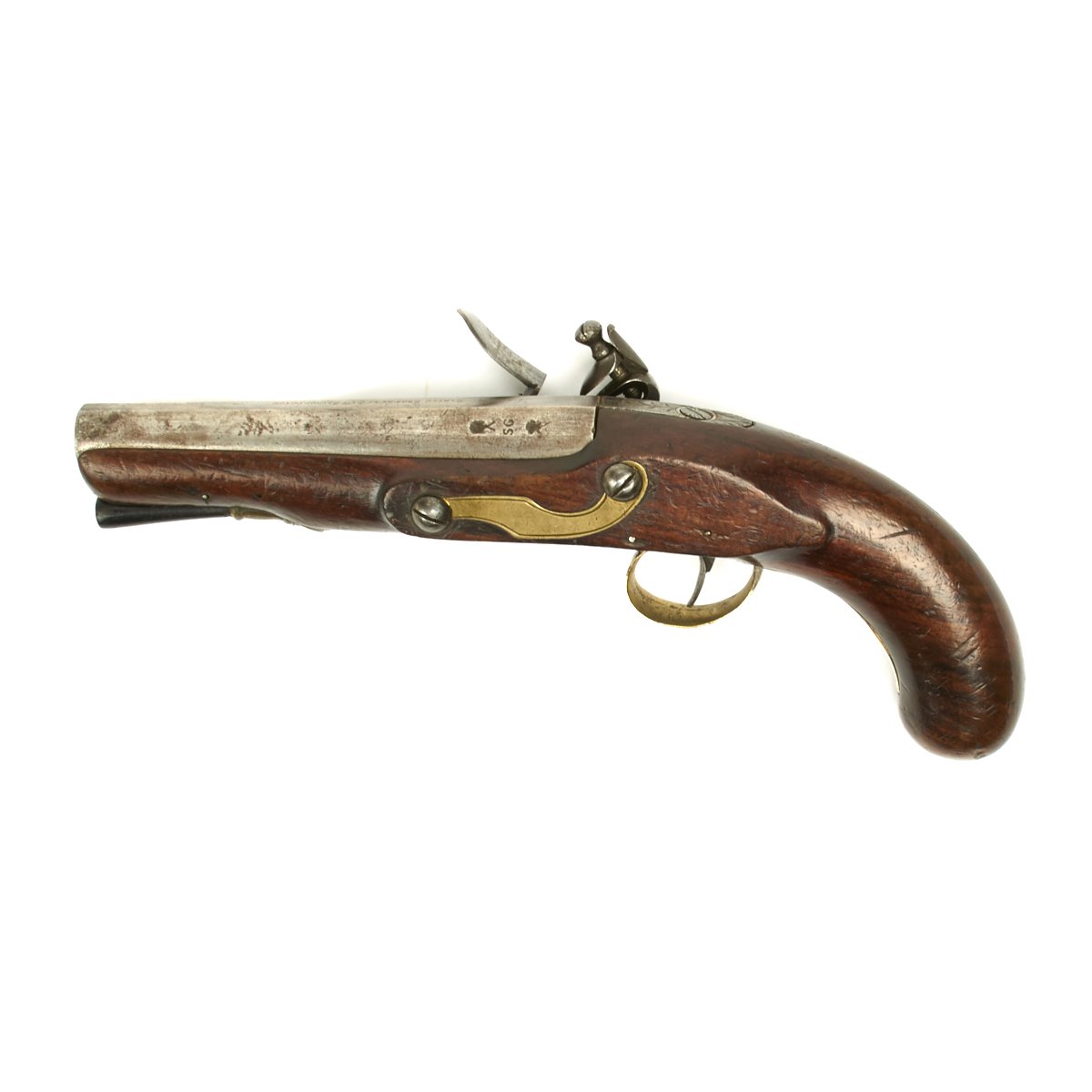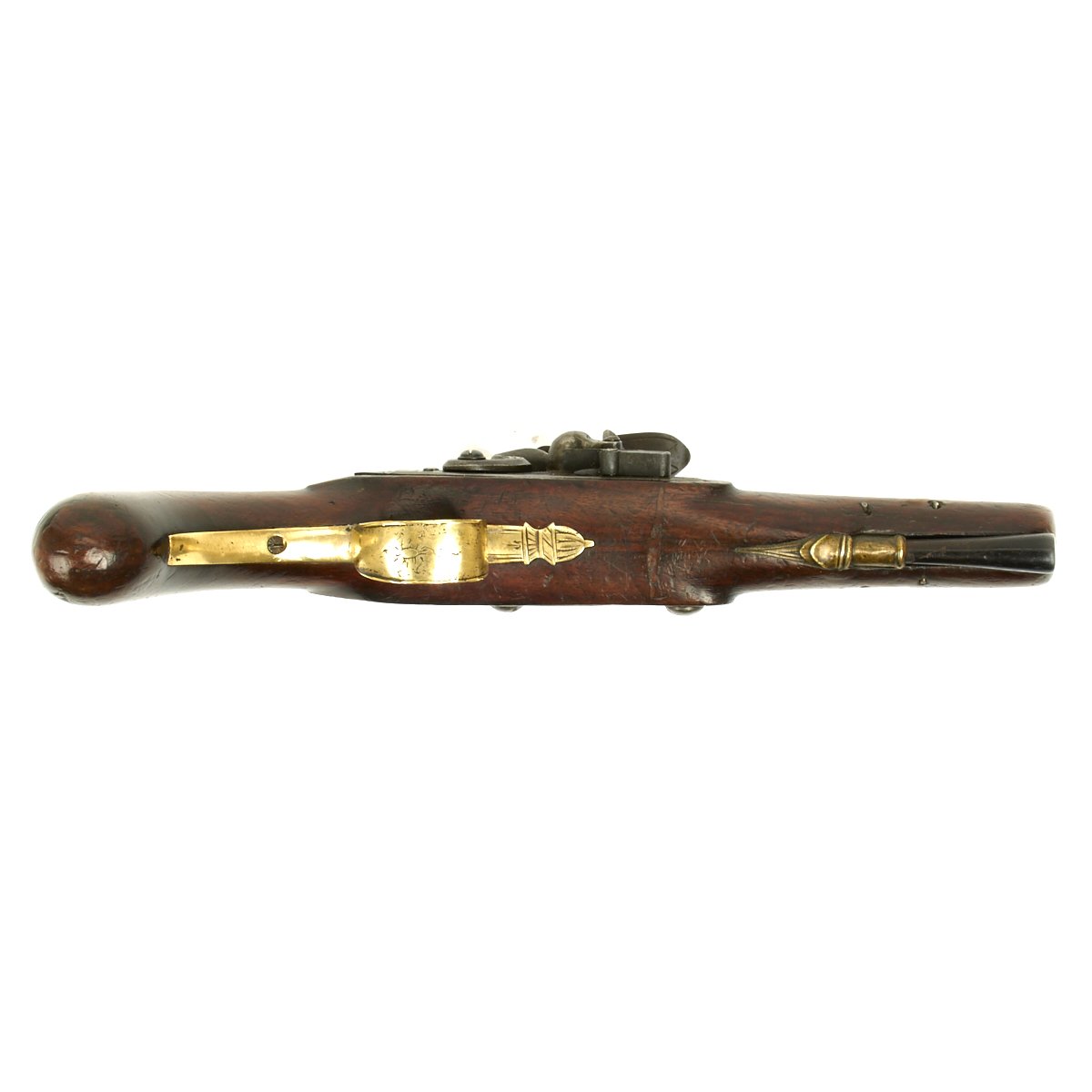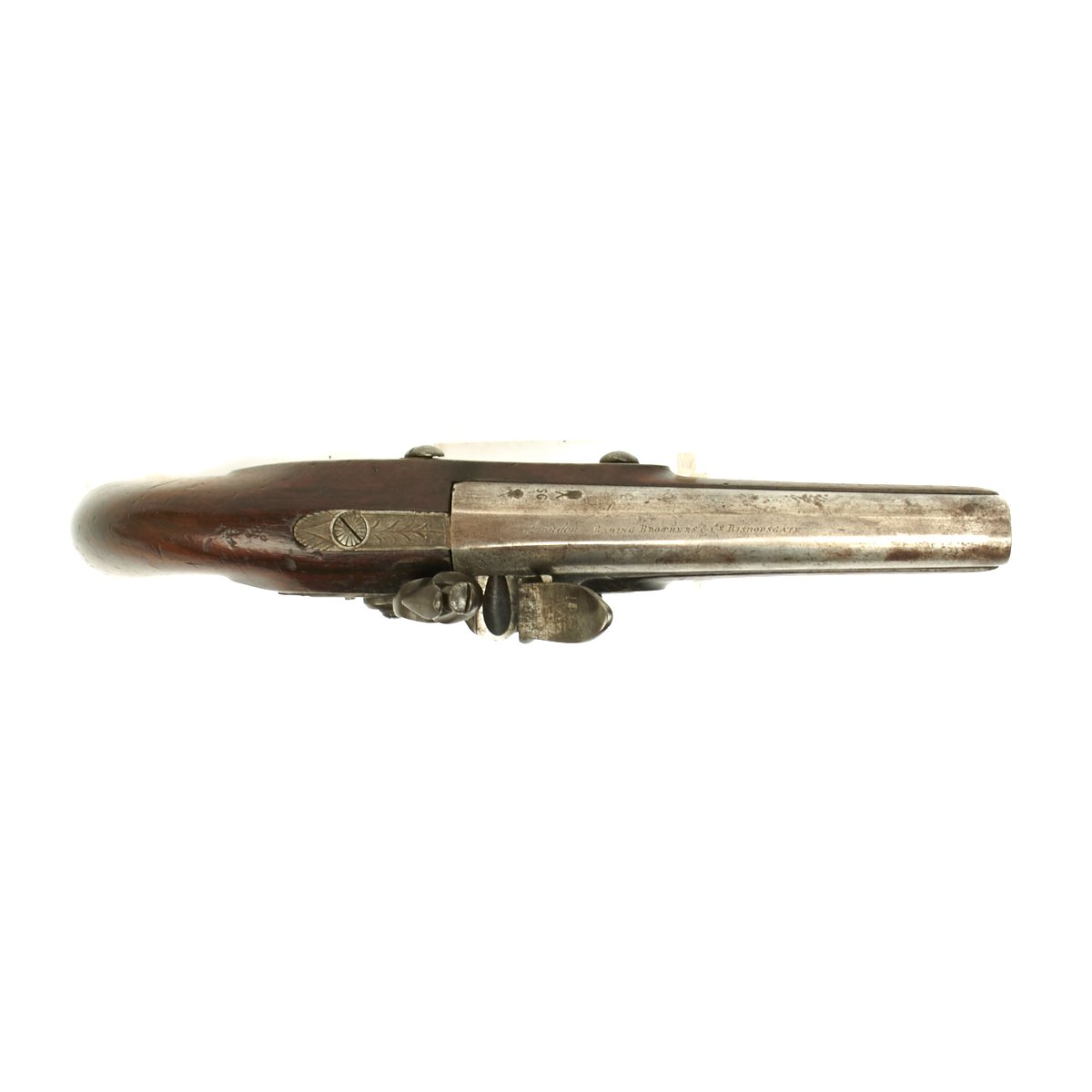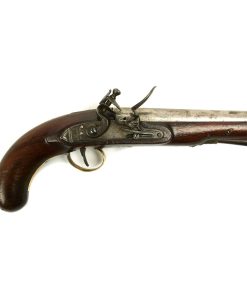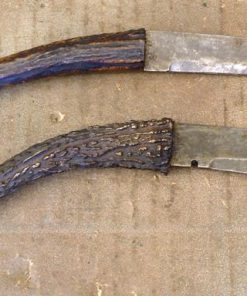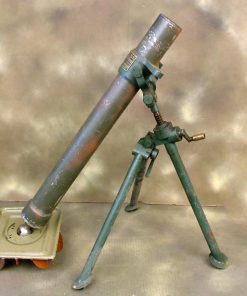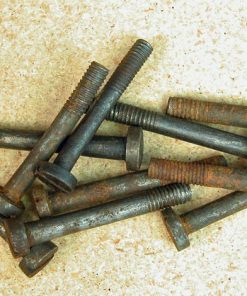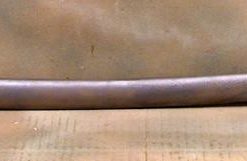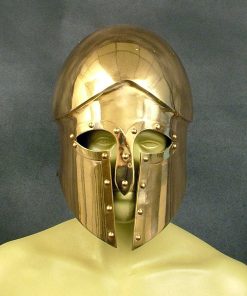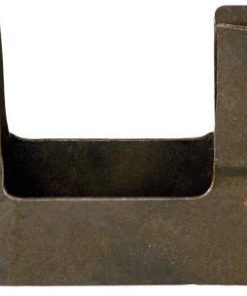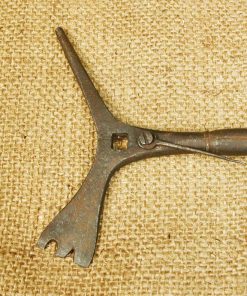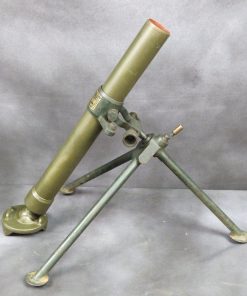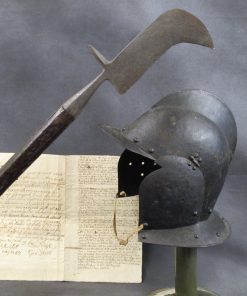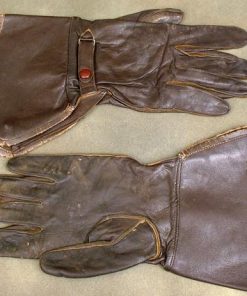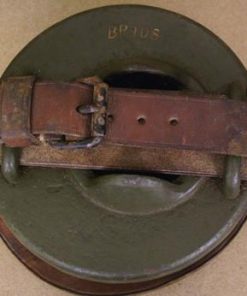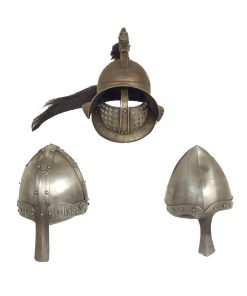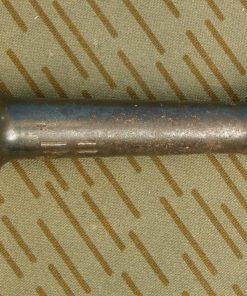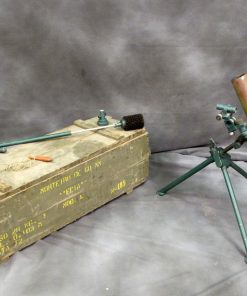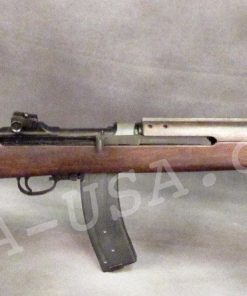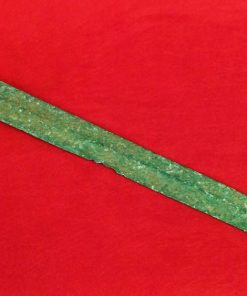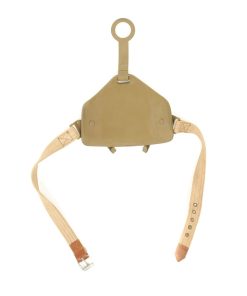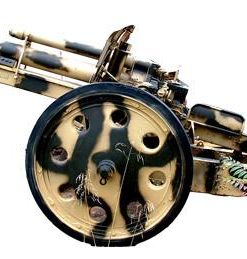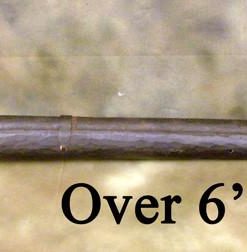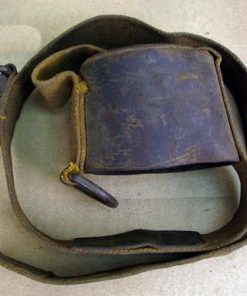Original 1812 British Flintlock Pistol by Galton for Baring Brothers & Co Bank Original Items
$ 1.995,00 $ 498,75
Original Item: One-of-a-kind. This is a charming flintlock “overcoat” style pistol made circa between 1806 and 1812 in London by gun maker SAMUEL GALTON who worked from 1790 until 1812.
The pistol measures just 12″ in overall length with a 6″ barrel bearing full British proof marks. The barrel is engraved:
LONDON – BARING BROTHERS & CO, BISHOPSGATE
The lock with engraved decoration is marked: S.GALTON
Barings Bank was a British merchant bank based in London, and the world’s second oldest merchant bank (after Berenberg Bank). It was founded in 1762 and was owned by the German-originated Baring family of merchants and bankers.
The bank collapsed in 1995 after suffering losses of £827 million ($1.3 billion) resulting from poor speculative investments, primarily in futures contracts, conducted by an employee named Nick Leeson working at its office in Singapore.
17621890
Barings Bank was founded in 1762 as the John and Francis Baring Company by Francis Baring, with his older brother John Baring as a mostly silent partner. They were sons of John (né Johann) Baring, wool trader of Exeter, born in Bremen, Germany. The company began in offices off Cheapside and within a few years moved to larger quarters in Mincing Lane. Barings gradually diversified from wool into many other commodities, providing financial services necessary for the rapid growth of international trade. By 1790, Barings had greatly expanded its resources, both through Francis’ efforts in London and by association with leading Amsterdam bankers Hope & Co. In 1793, the increased business necessitated a move to larger quarters in Devonshire Square. Francis and his family lived upstairs, above the offices.
In 1800, John retired and the company was reorganized as Francis Baring and Co. Francis’ new partners were his eldest son Thomas (later to be Sir Thomas Baring, 2nd Baronet) and son-in-law Charles Wall. Then, in 1802, Barings and Hope were called on to facilitate the largest land purchase in history – the Louisiana Purchase. This was accomplished despite the fact that Britain was at war with France and the sale had the effect of financing Napoleon’s war effort. Technically, the United States purchased Louisiana from Barings and Hope, not from Napoleon. Baring was willing to help Napoleon in the short term, however, because he, and British politicians who backed him, wagered American expansion into Louisiana would mean what was now becoming a familiar formula involving the extermination of native populations, the importation of Africans as slaves, and the production and export of cotton to the whirring British mills around Manchester. In other words, American slavery would ensure Baring’s profits in Britain. After a $3 million down payment in gold, the remainder of the purchase was made in U.S. bonds, which Napoleon sold to Barings through Hope and Company of Amsterdam at a discount of 87½ per $100. Francis’ second son Alexander, working for Hope & Co., made the arrangements in Paris with François Barbé-Marbois, Director of the Public Treasury. Alexander then sailed to the United States and back to pick up the bonds and deliver them to France.
In 1803, Francis began to withdraw from active management, bringing in Thomas’ younger brothers Alexander and Henry to become partners in 1804. The new partnership was called Baring Brothers & Co., which it remained until 1890. The offspring of these three brothers became the future generations of Barings leadership. In 1806, the company relocated to 8 Bishopsgate, where they stayed for the remaining life of the company, the property undergoing several expansions and refurbishments, and finally putting up a new high-rise building in 1981.
Barings helped to finance the United States government during the War of 1812. A fall off in business and a lack of good leadership in 1820s caused Barings to cede its dominance in the City of London to the rival firm of N M Rothschild & Sons. Barings remained a powerful firm, however, and in the 1830s the leadership of new American partner Joshua Bates, together with Thomas Baring, son of Sir Thomas Baring, 2nd Baronet, began a turnaround. Bates advocated a shift in Barings’ efforts from Europe to the Americas, believing that greater opportunity lay in the West. In 1832, a Barings office was established in Liverpool specifically to capitalize on new North American opportunities. In 1843, Barings became exclusive agent to the U.S. government, a position they held until 1871.
Barings was next appointed by Sir Robert Peel with supplying ‘Indian corn’ or maize to Ireland as a famine relief foodstuff between November 1845 and July 1846 following the failure of the staple potato crop. The company declined to act beyond 1846 when the government instructed them to restrict purchases to within the United Kingdom. Baring Brothers refused any commission for work performed in the cause of famine relief. Their position as prime purchasers of Indian corn was assumed by Erichson, a corn factor of Fenchurch St, London.
In 1851, Baring and Bates brought in another American, Russell Sturgis as partner. Despite the embarrassment to his partners caused by his sympathies for the South in the American Civil War, Sturgis proved a capable banker and, following the death of Bates in 1864, gradually assumed a leadership role in the firm. In the 1850s and 1860s, commercial credit business provided the firm with its ‘bread and butter’ income. Thomas Baring’s nephew Edward, son of Henry Baring, became a partner in 1856. By the 1870s, under the emerging leadership of “Ned” Baring, later the 1st Baron Revelstoke, Barings increasingly involved in international securities, especially from the United States, Canada, and Argentina. Barings cautiously and successfully ventured into the North American railroad boom following the Civil War. A new railroad town in British Columbia was renamed Revelstoke, in honor of the leading partner of the bank that enabled the completion of the Canadian-Pacific Railway.
Later in the 1880s, daring efforts in underwriting got the firm into serious trouble through overexposure to Argentine and Uruguayan debt. In 1890, Argentine president Miguel Juárez Celman was forced to resign following the Revolución del Parque, and the country was close to defaulting on its debt payments. This crisis finally exposed the vulnerability of Barings’ position, which lacked sufficient reserves to support the Argentine bonds until they got their house in order. Through the organisational skills of the governor of the Bank of England, William Lidderdale, a consortium of banks was arranged, headed by former governor Henry Hucks Gibbs and his family firm of Antony Gibbs & Sons, to bail Barings out and support a bank restructuring. The resulting turmoil in financial markets became known as the Panic of 1890.
Fast Shipping with Professional Packaging
Thanks to our longstanding association with UPS FedEx DHL, and other major international carriers, we are able to provide a range of shipping options. Our warehouse staff is expertly trained and will wrap your products according to our exact and precise specifications. Prior to shipping, your goods will be thoroughly examined and securely secured. We ship to thousands clients each day across multiple countries. This shows how we're dedicated to be the largest retailer on the internet. Warehouses and distribution centres can be located throughout Europe as well as the USA.
Note: Orders with more than one item will be assigned a processing date depending on the item.
Before shipping before shipping, we'll conduct a thorough inspection of the items you have ordered. Today, the majority of orders will be delivered within 48 hours. The delivery time will be between 3-7 days.
Returns
The stock is dynamic and we cannot completely manage it because multiple stakeholders are involved, including our factory and warehouse. So the actual stock may alter at any time. It's possible that you may not receive your order once the order has been made.
Our policy is valid for a period of 30 days. If you don't receive the product within 30 days, we are not able to issue a refund or an exchange.
You can only return an item if it is unused and in the same state as the day you received it. You must have the item in its original packaging.
Related products
Uncategorized
Uncategorized
Uncategorized
Uncategorized
Uncategorized
Angolan Rebel 1970s era 60mm Inert Display Mortar from Angolan Civil War Original Items
Uncategorized
Uncategorized
Uncategorized
Uncategorized
Armored Burgonet Helmet & Polearm from Scottish Castle Leith Hall Circa 1700 Original Items
Uncategorized
Uncategorized
Uncategorized
Uncategorized
Uncategorized
Uncategorized
Band of Brothers ORIGINAL GERMAN WWII Le. F.H. 18 10.5cm ARTILLERY PIECE Original Items
Uncategorized
Australian WWII Owen MK1 Machine Carbine SMG Custom Fabricated Replica with Sling Original Items
Uncategorized
